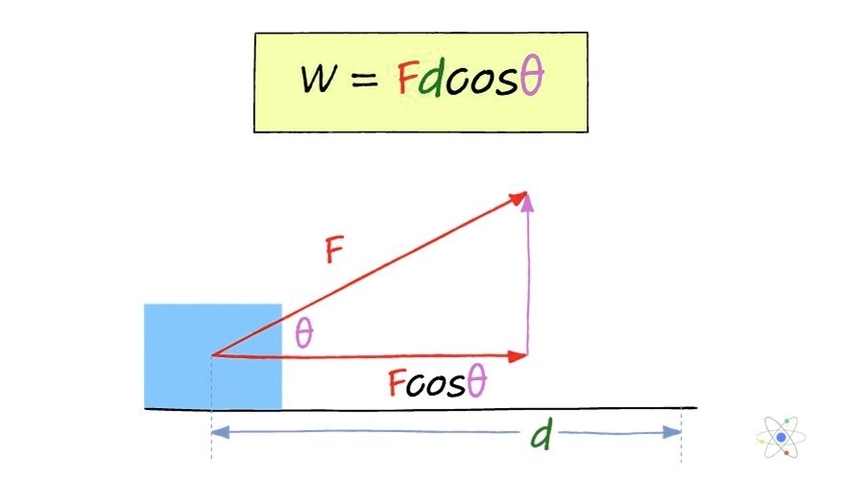
In physics, work is defined as the energy transferred to or from an object via the application of force along a displacement . In simpler terms, work is done when a force is applied to an object and the object moves in the direction of the force. The amount of work done is equal to the force applied multiplied by the distance the object moves in the direction of the force .
The SI unit of work is the joule (J), which is defined as the amount of work done when a force of one newton is applied over a distance of one meter in the direction of the force . Other units of work include the foot-pound and the erg .
Work can be either positive or negative depending on the direction of the force and the displacement of the object. If the force and displacement are in the same direction, the work done is positive. If the force and displacement are in opposite directions, the work done is negative .
For example, when a ball is held above the ground and then dropped, the work done by the gravitational force on the ball as it falls is positive, and is equal to the weight of the ball (a force) multiplied by the distance to the ground (a displacement). If the ball is thrown upwards, the work done by the gravitational force is negative, and is equal to the weight multiplied by the displacement in the upwards direction .
